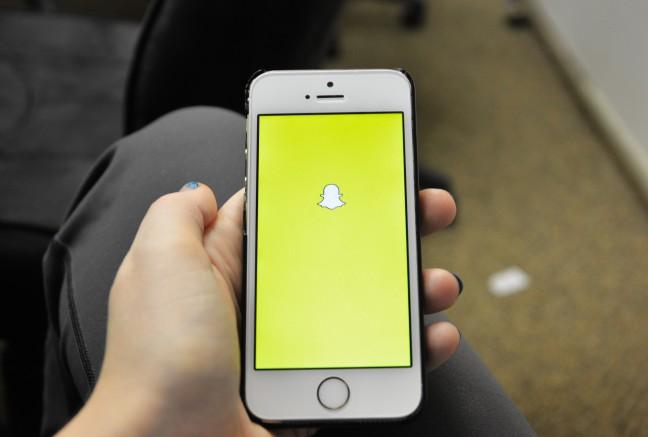Farewell uwmadison_snaps, your unapologetically crude glimpse into the unglamorous and youthful pursuits of college life will be missed.
Sometime around the football game against Maryland, students’ gravitation toward the short-lived Snapchat handle, uwmadison_snaps, was simply too much to ignore. Suddenly every conversation I shared with a fellow student included two questions: “Did you see that on UW snaps?” and “You don’t have UW snaps?” Though the handle has recently met it’s untimely demise, the legacy carries on in the hearts and screenshots folder of students.
I liked uwmadison_snaps. It was often gross and sophomoric, but more importantly it captured the lives of today’s college students in a way only an anonymous social media application is capable of.
The popularity of social media applications amongst millennials, ranging from Facebook to Snapchat, can be found in one’s strong urge to know what others are doing, to share what they themselves are doing and the subsequent persistence of FOMO, or rather, “fear of missing out.” Several recent studies have stipulated that engagement with social media, namely Facebook, increases FOMO to the point where it can cause depression, loneliness and envy. Regardless of these negative effects, social media’s hold on our attention spans has not dwindled, but enlarged.
With this in mind, uwmadison_snaps was the perfect solicitor of college student attention. While its roots in social media made it innately addictive, the content served to fuel said addiction. Boobs, weed and infinite bathroom shenanigans were all chronicled within the app. When the morning of Nov. 1 rolled around, I immediately reached for my phone to witness the Halloween beer bongs and, seemingly, lines of coke strung across a naked butt. The gratuitous photographs and videos, detailing intimate moments of lives not so distant from our own, is an opportunity few students can resist. And with the promise of anonymity and inciting social media buzz, the content continued to flood into whomever controlled this handle, providing the entertainment that had captivated Madison.
But despite the popularity of the handle, the mass debauchery depicted raised many questions amongst students as to the moral and ethical boundaries being crossed behind closed doors throughout the UW campus. I’ve found that the most backlash stemmed from the several pictures of women’s breasts, taken as selfies and, hypothetically, sent to uwmadison_snaps willingly. I have heard several people say things like, “I didn’t know girls like that go here,” or “Why would they ever do that?”
These accusative comments make me question what these critics mean by “girls like that.” I am a strong believer that taking selfies is an act of self-appreciation that is often labeled by others as a form of egotism. Naked selfies are no exception. If a woman, or man, chooses to take a flattering picture of their clothless figure and send it to Snapchat, that is their prerogative. Shaming women for voluntarily sharing these photos is equivalent to slut-shaming, a type of sexism where a woman is deemed morally lesser for engaging in “promiscuous” behavior. While one might not agree with a woman’s choice to do so, that does not make it okay to judge others.
This idea can be extended to the other facets of uwmadison_snaps. The drinking, smoking, puking, butts, six-packs and every other candid moment shown on Snapchat can take a lot of people aback.
It was refreshing to witness my fellow Badgers drunkenly dance in the street or take a hit from a well-rolled joint, acknowledging our dirtier sides and rather than feeling ashamed, embracing them. And even while doing so, we’re all watching out for each other. In a twisted manner, this Snapchat story that had ensnared our study breaks was about both indulging our curiosity and celebrating our collegiate solidarity. Rest in peace uwmadison_snaps.
Audrey Piehl (apiehl@badgerherald.com) is a sophomore majoring in history.


